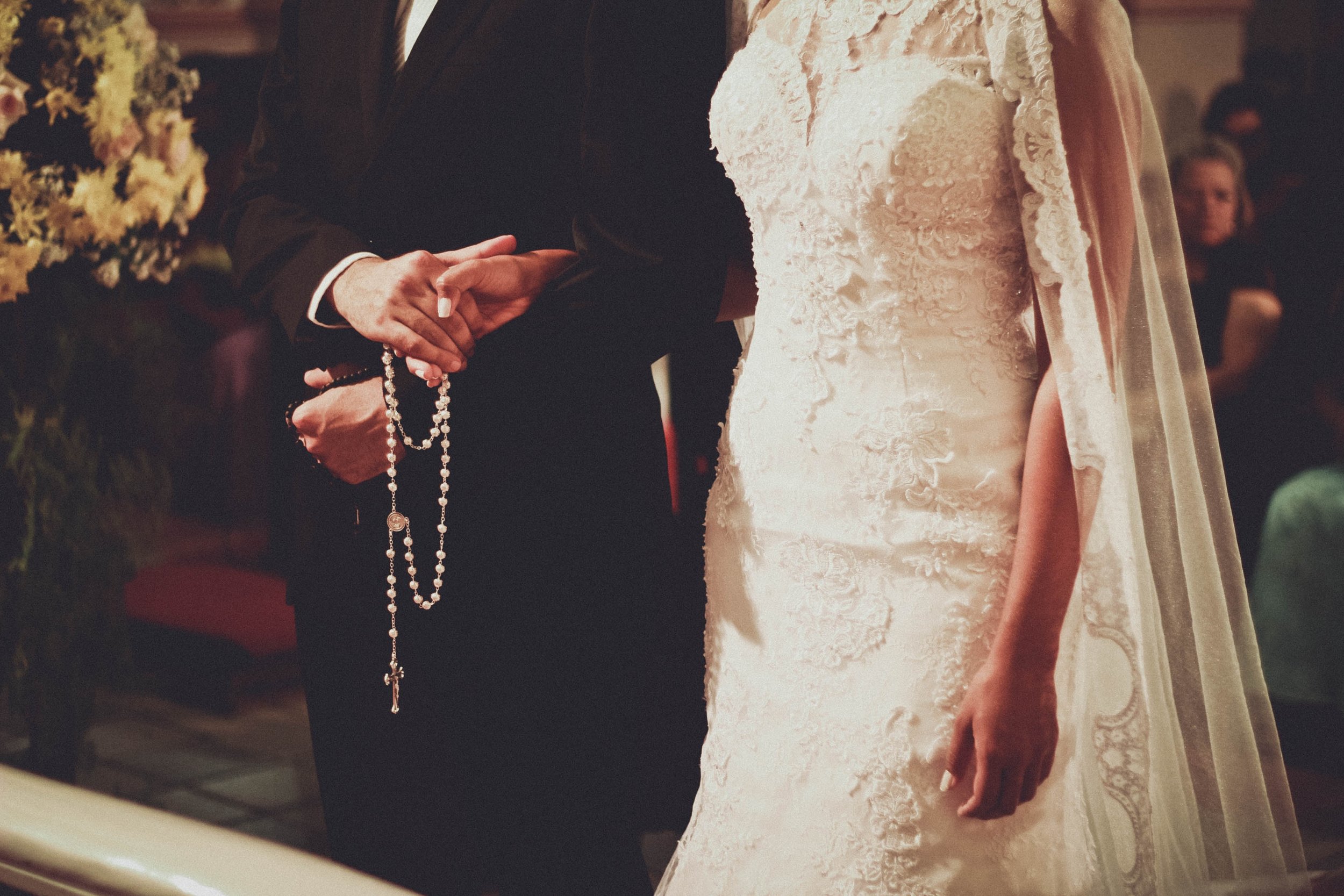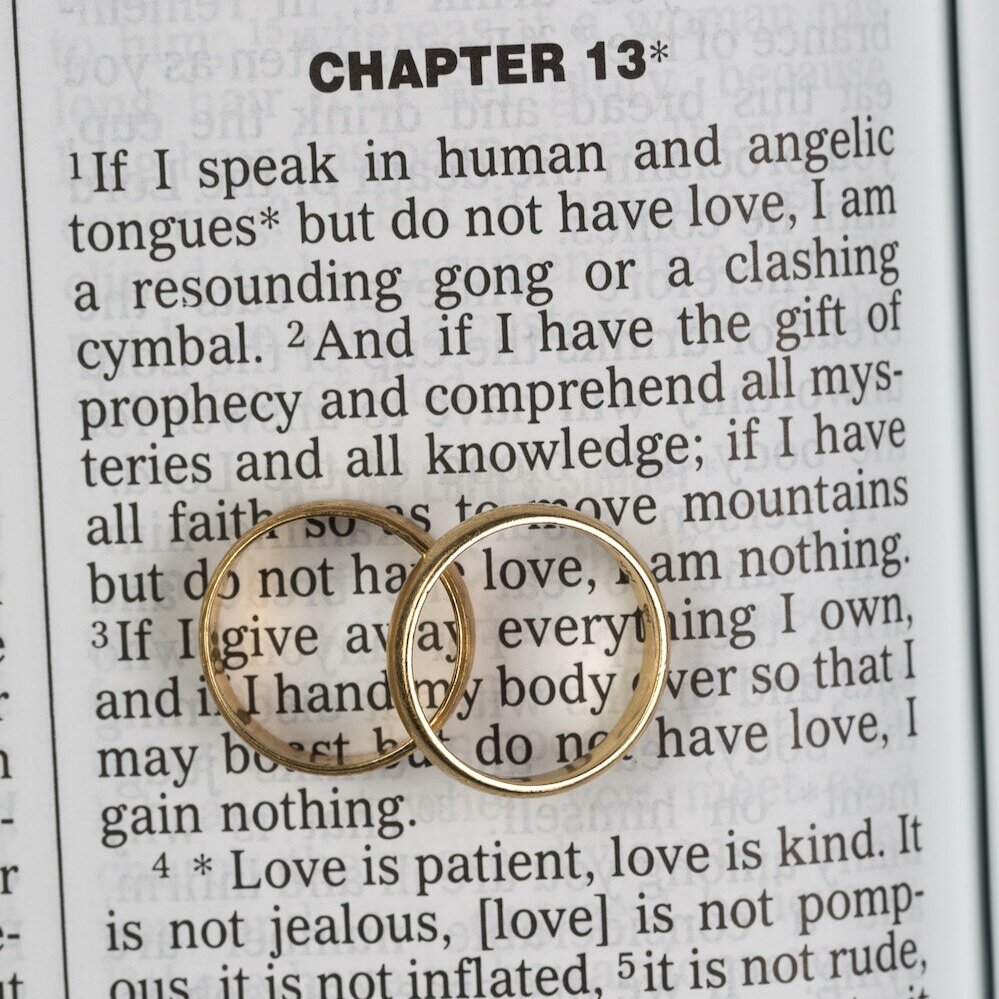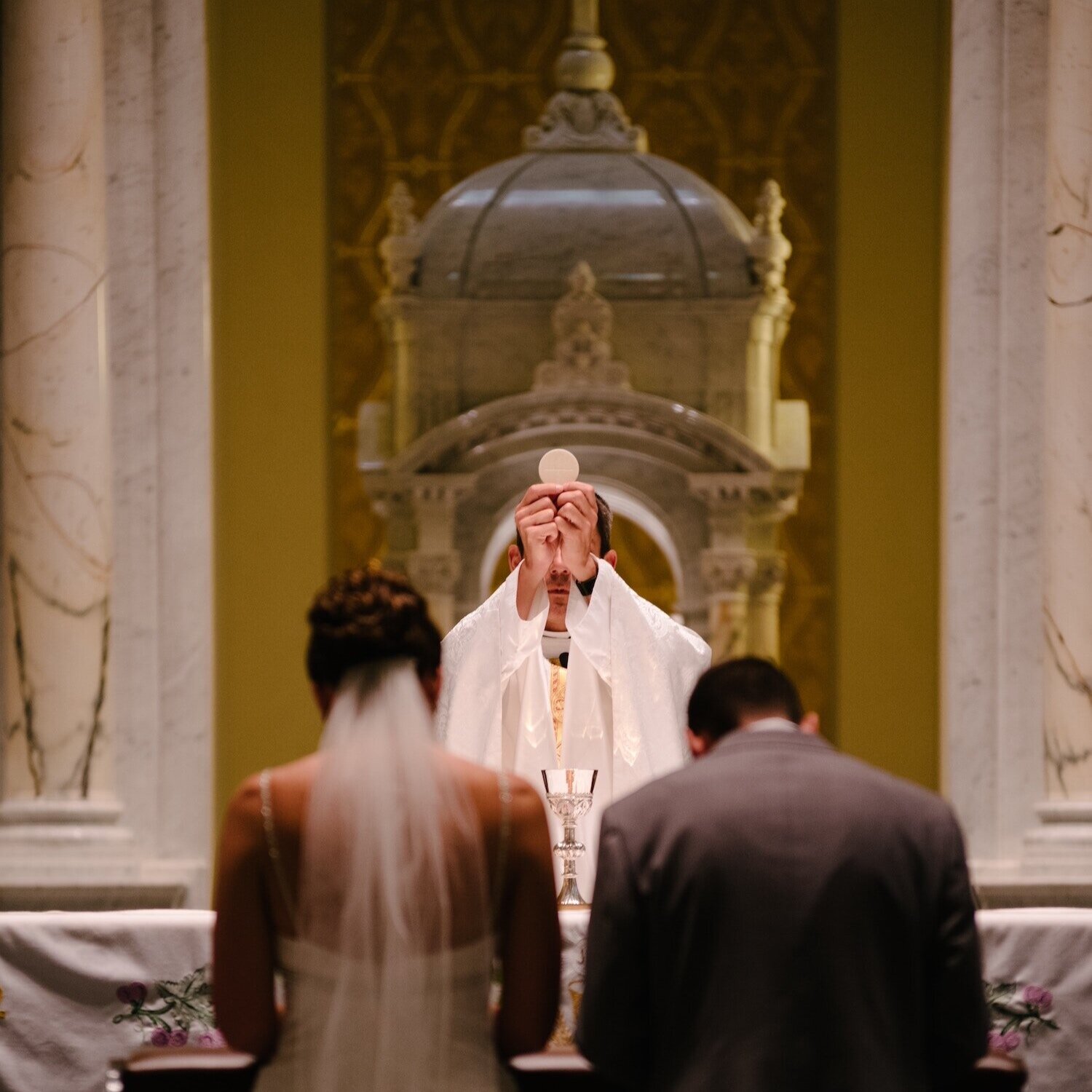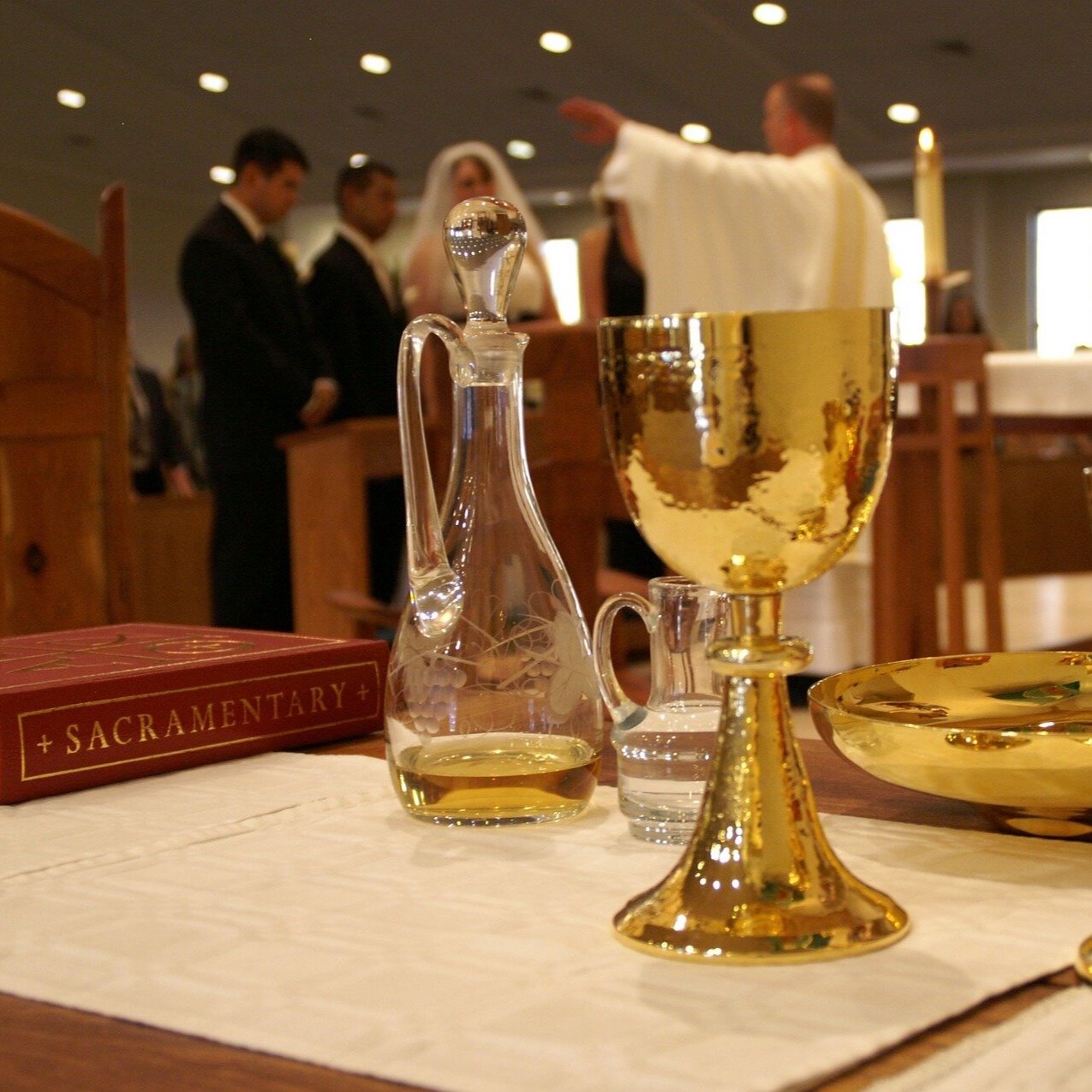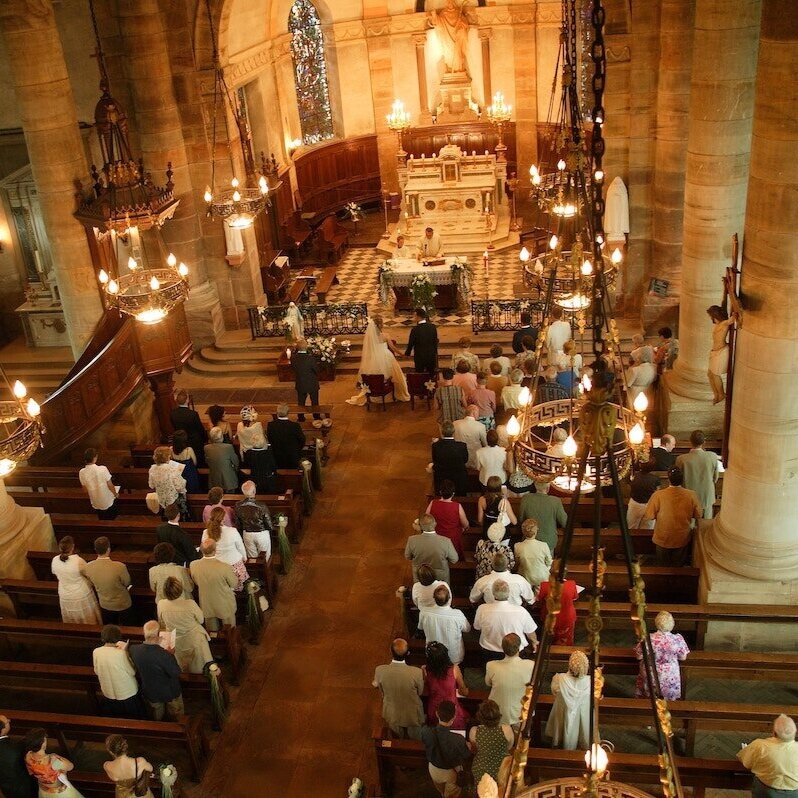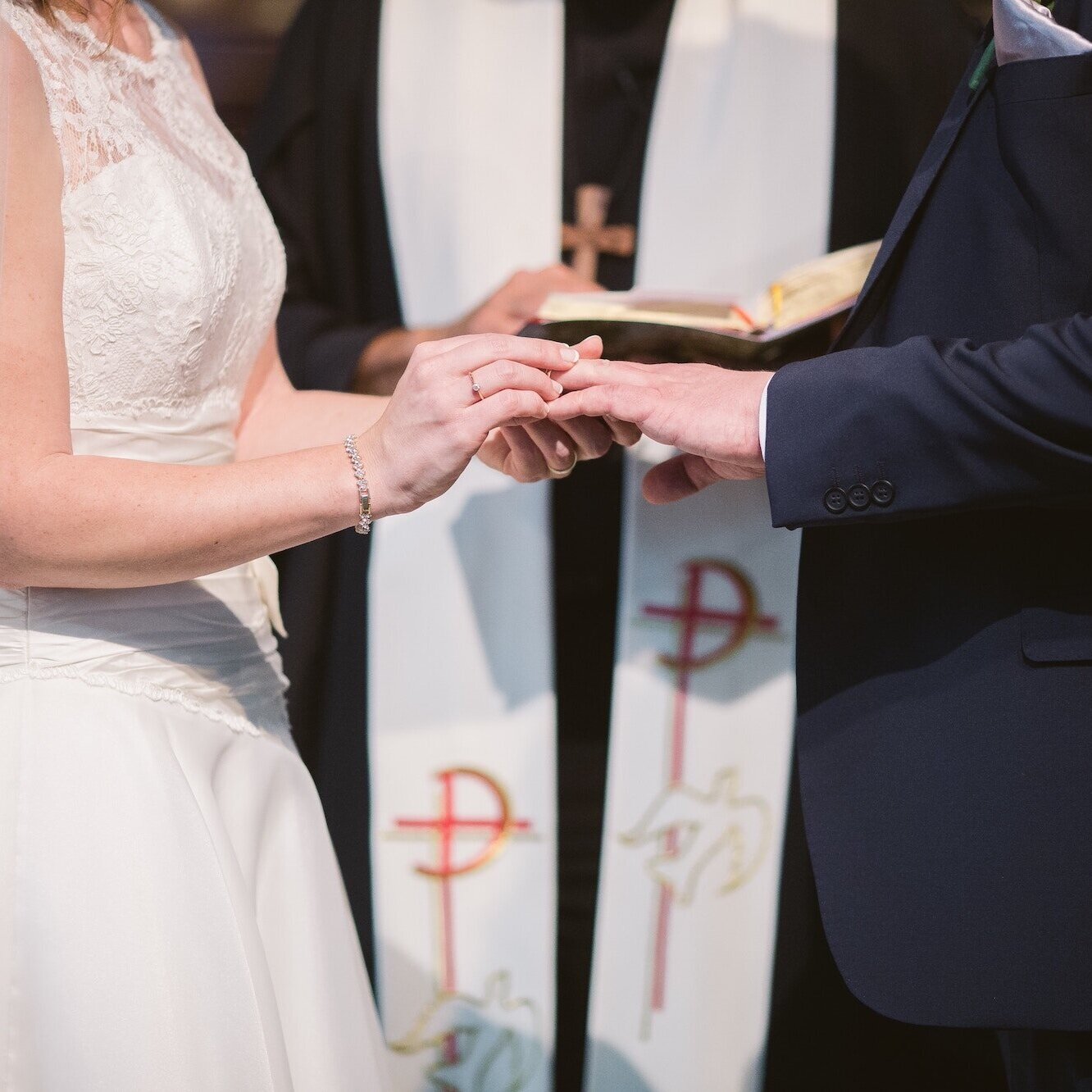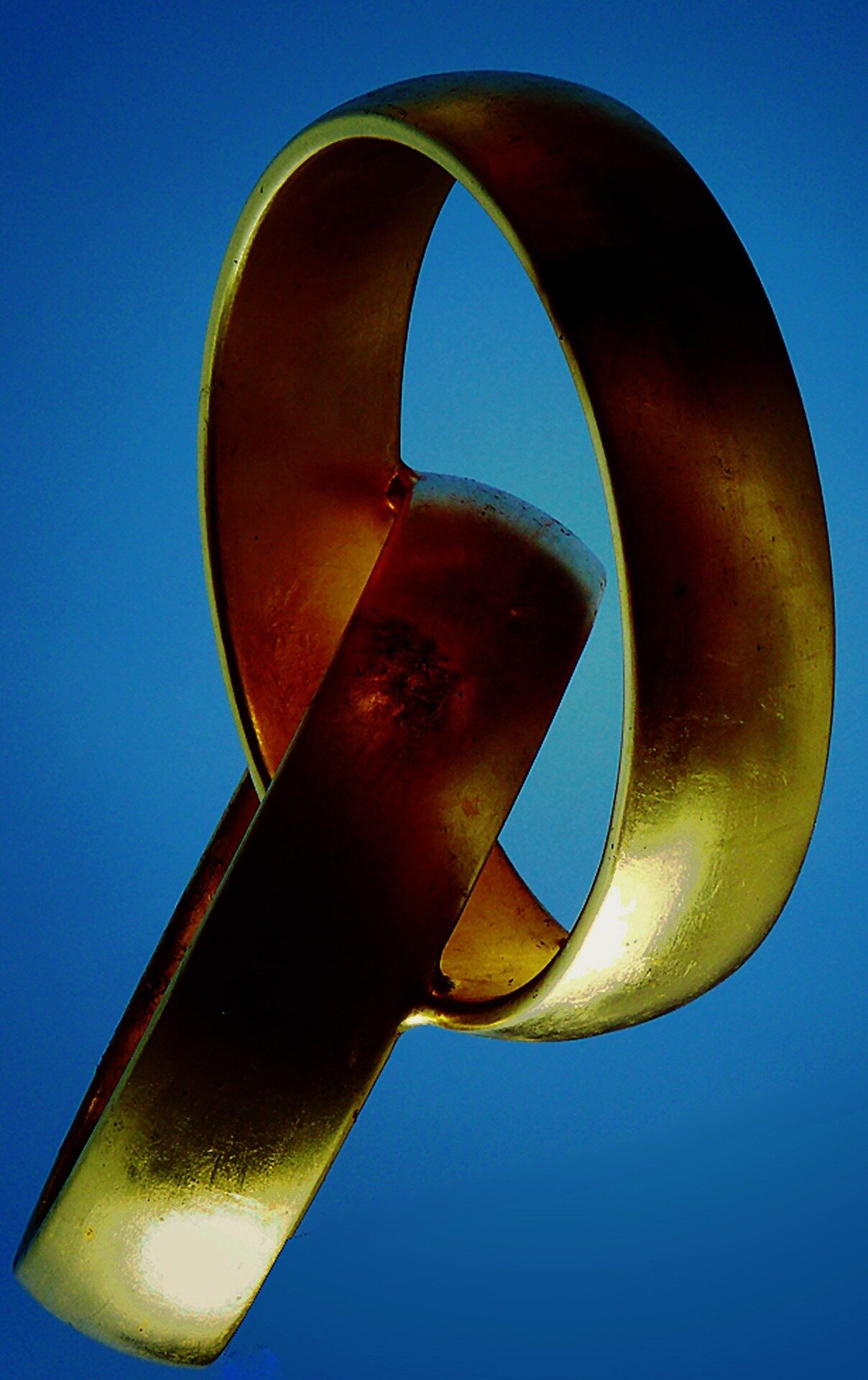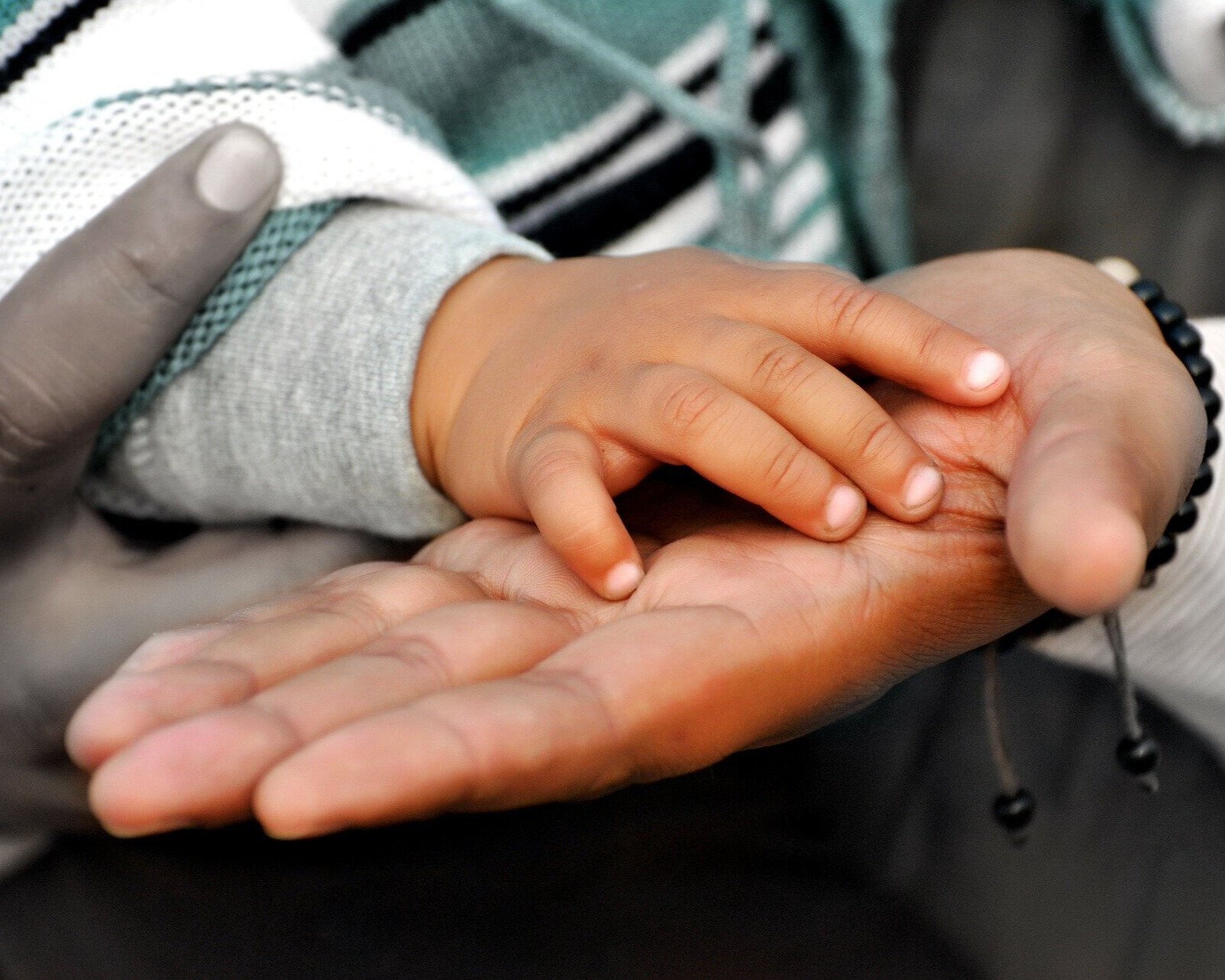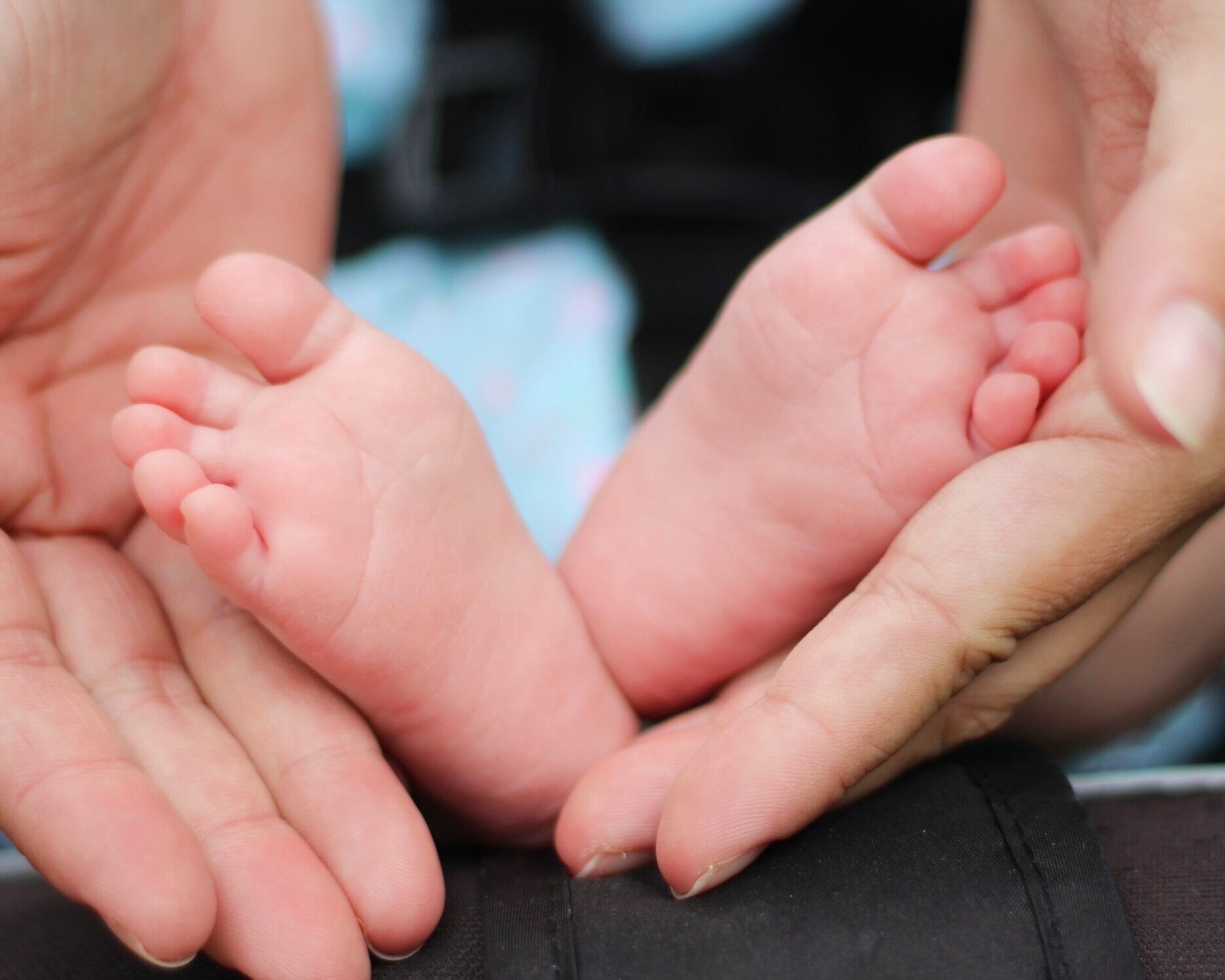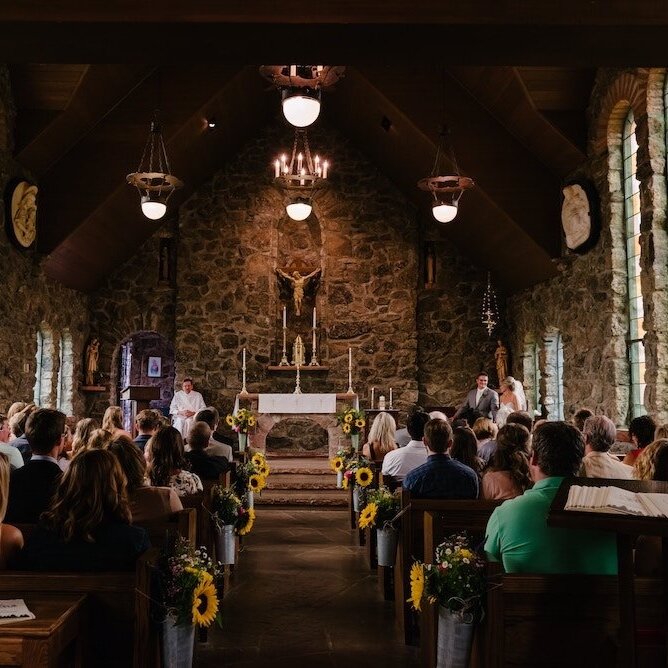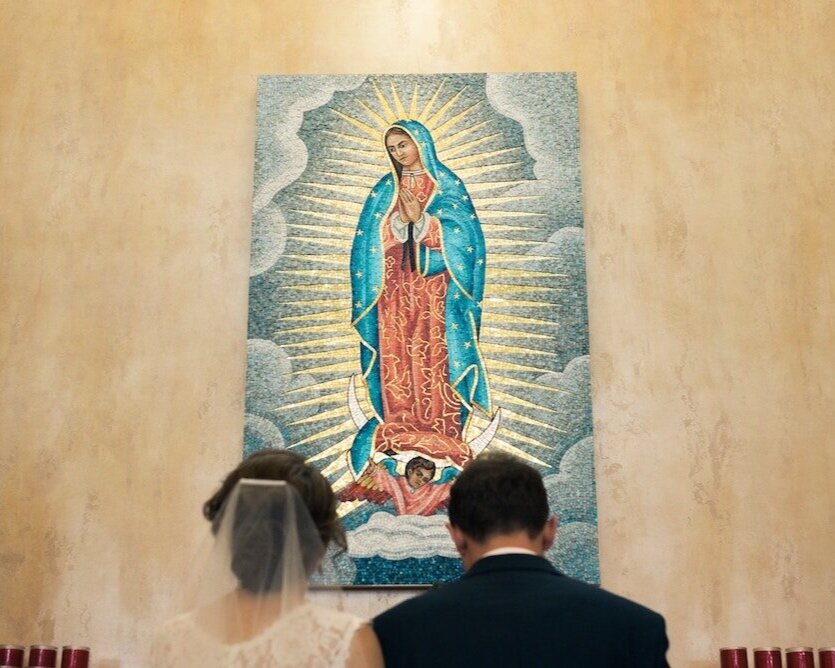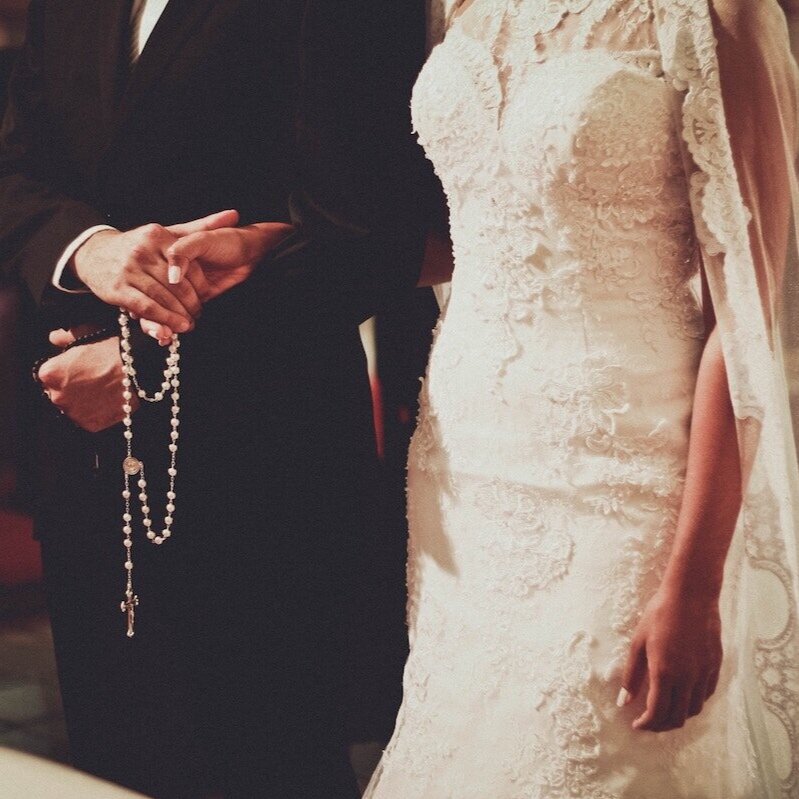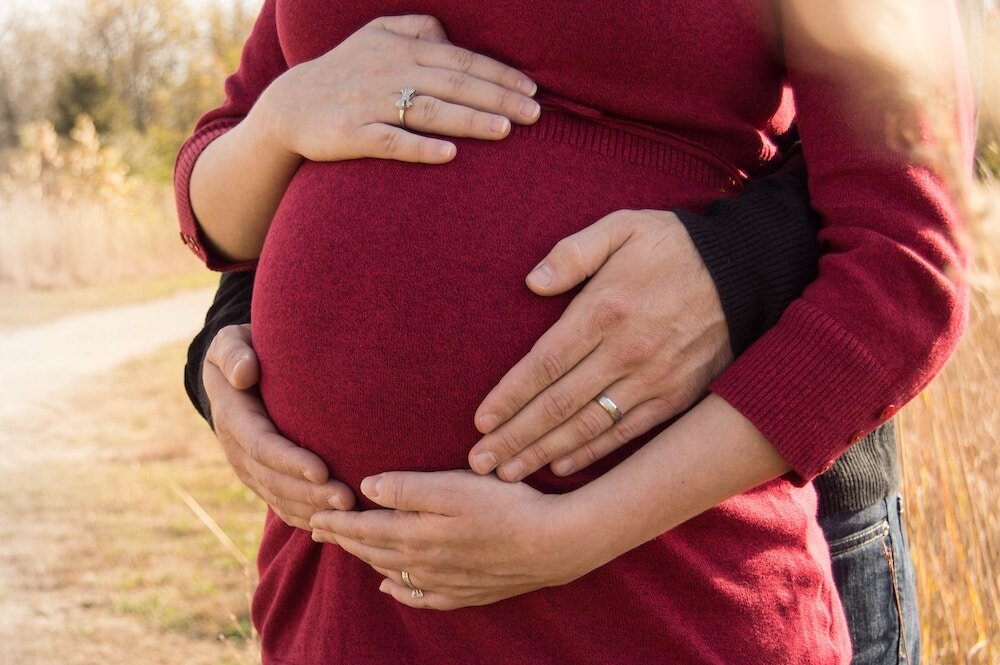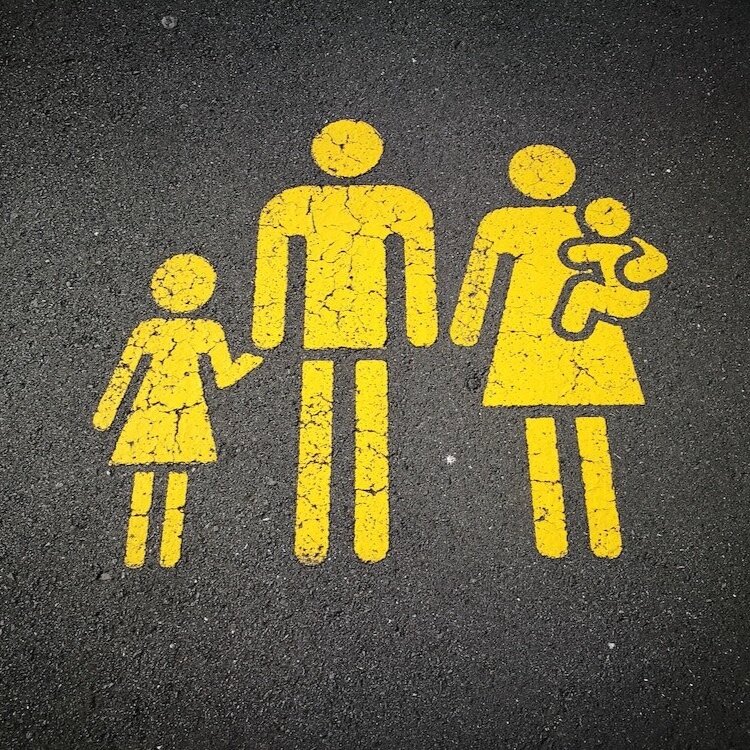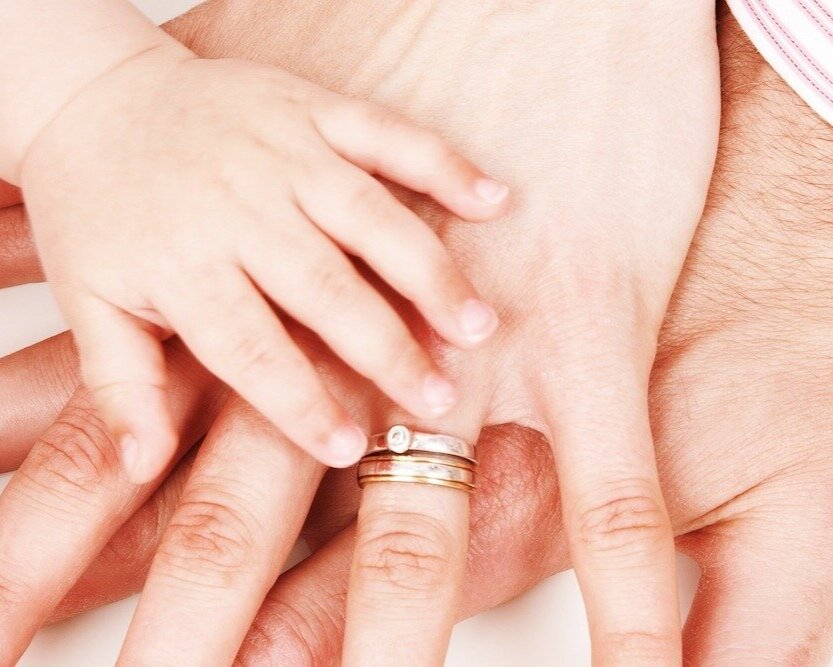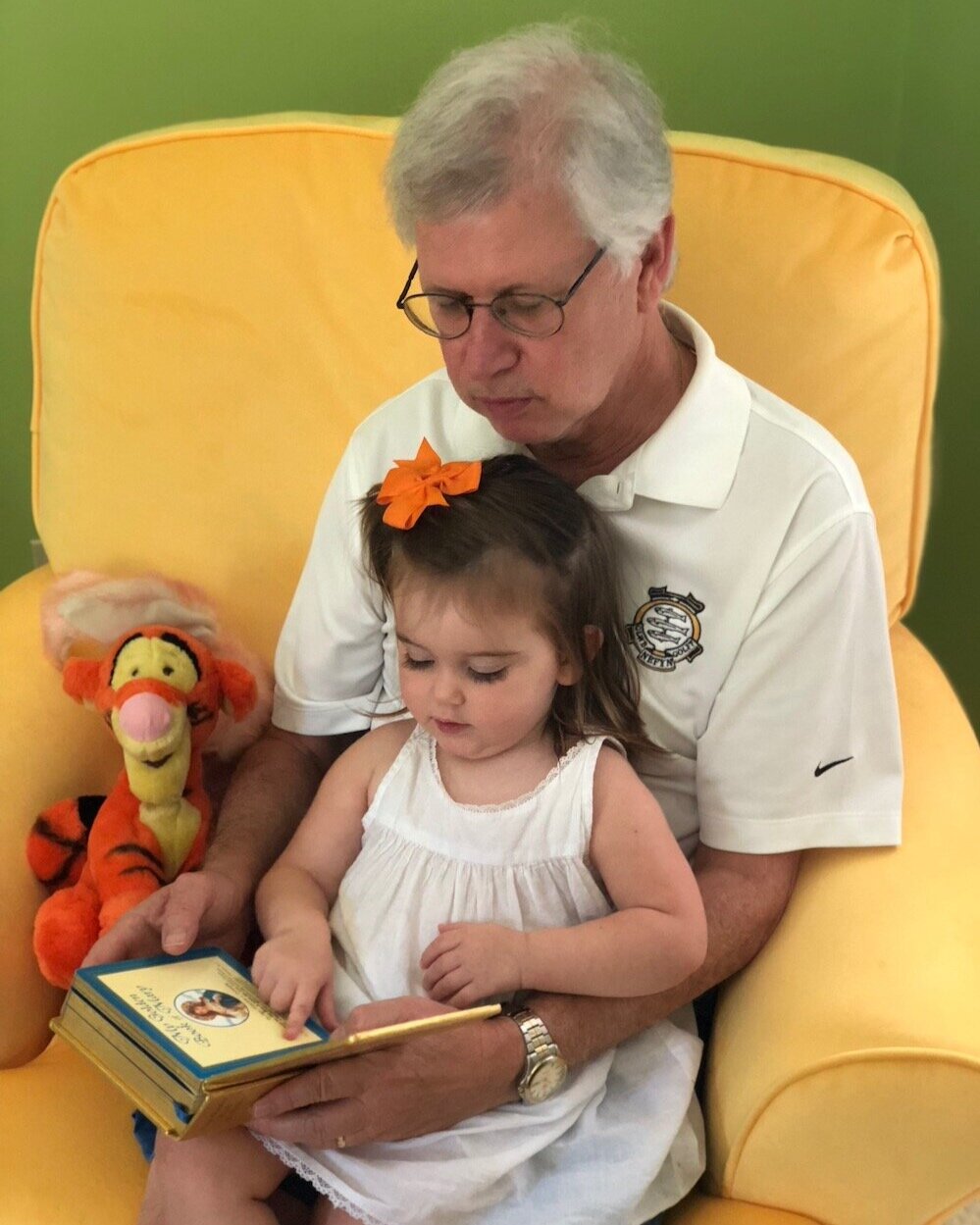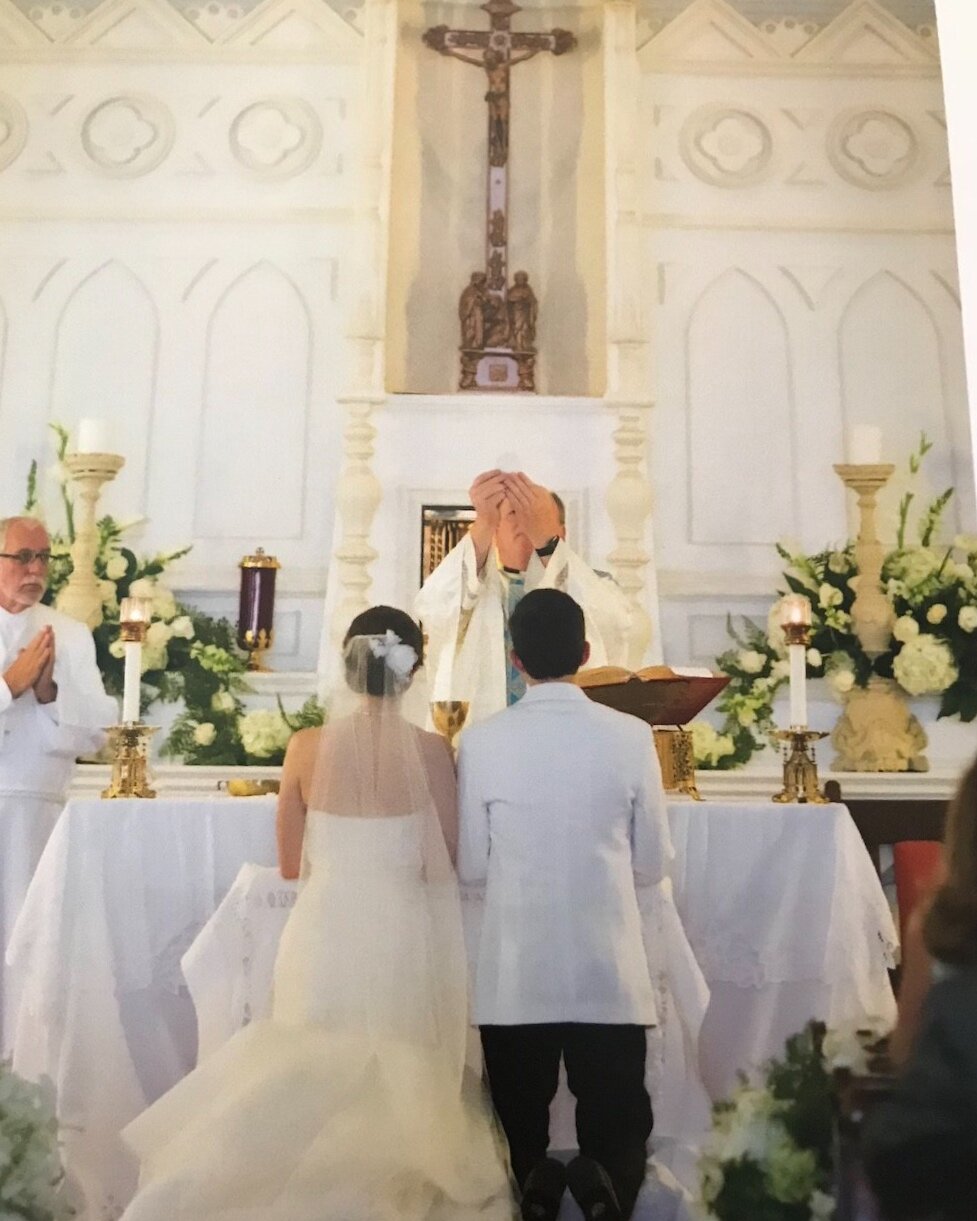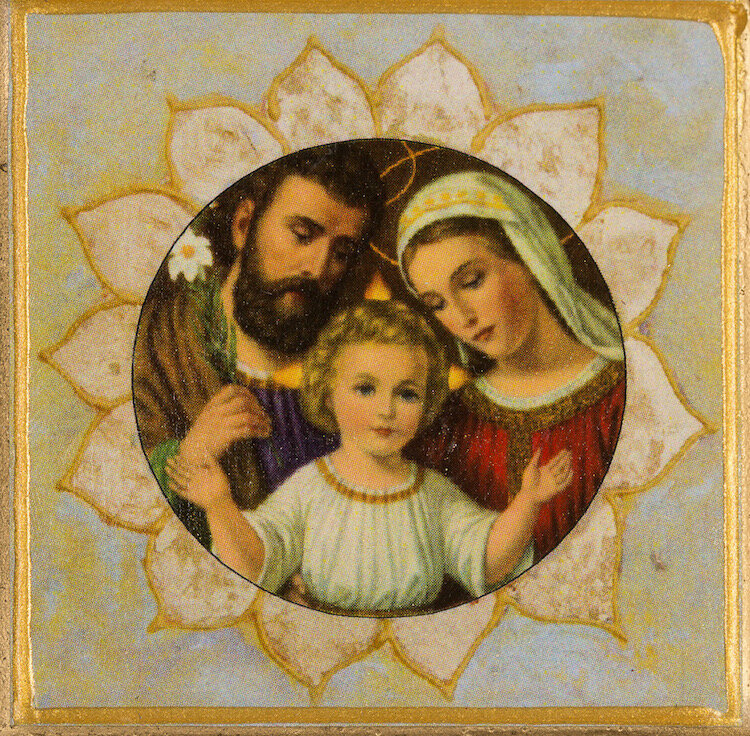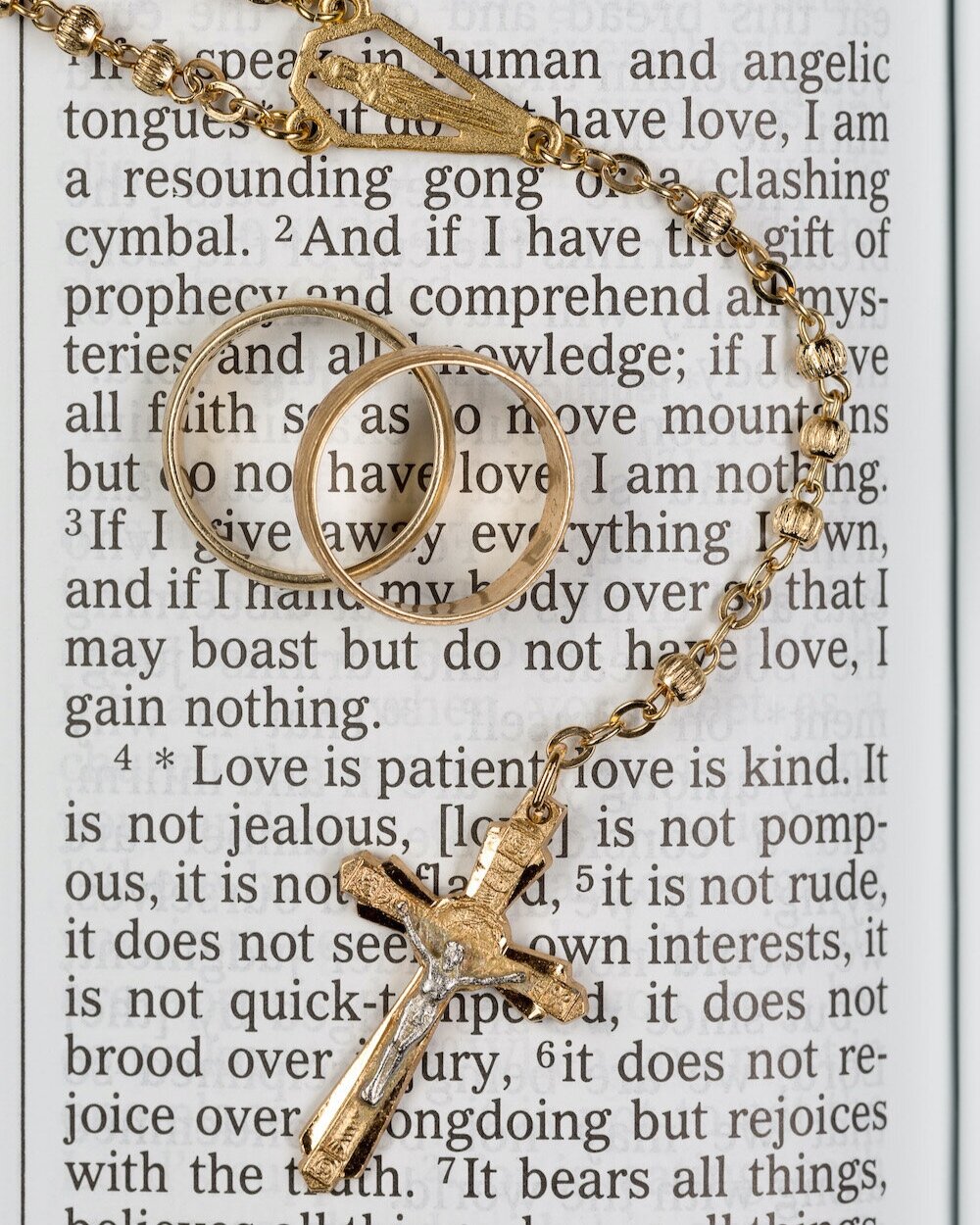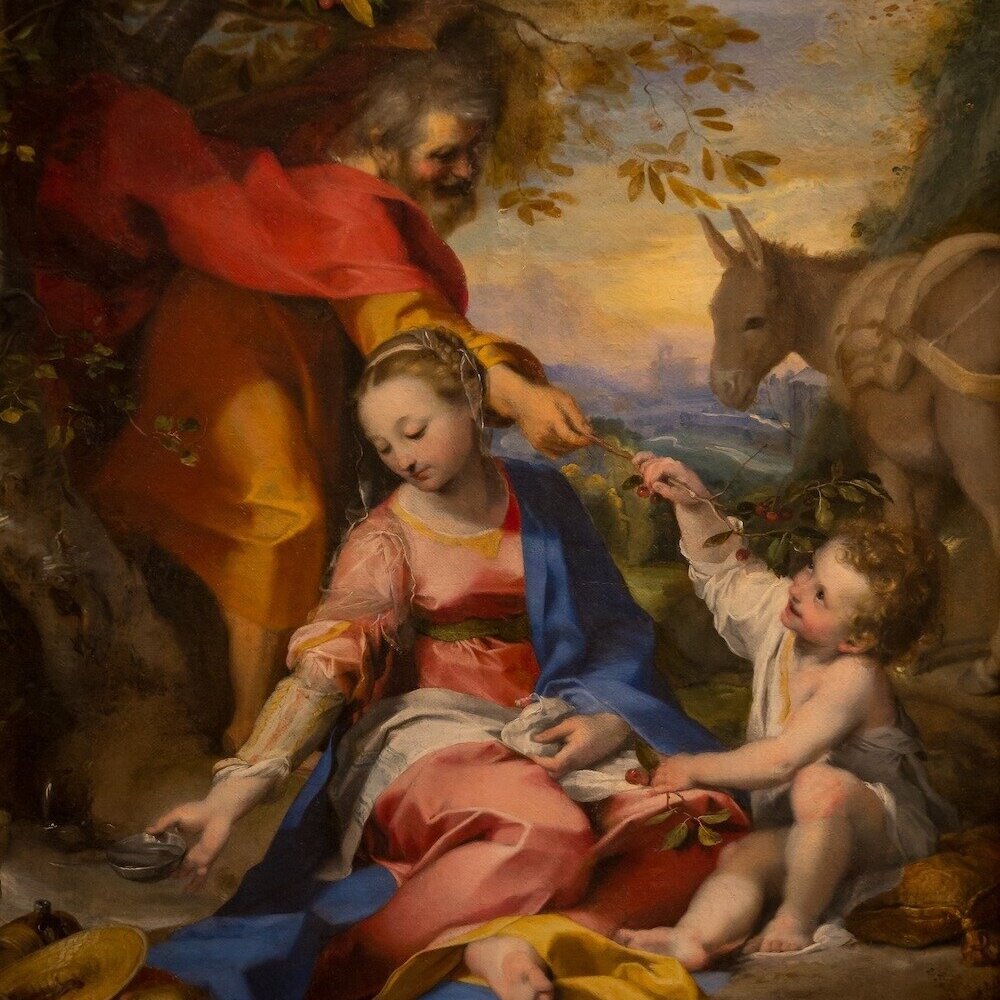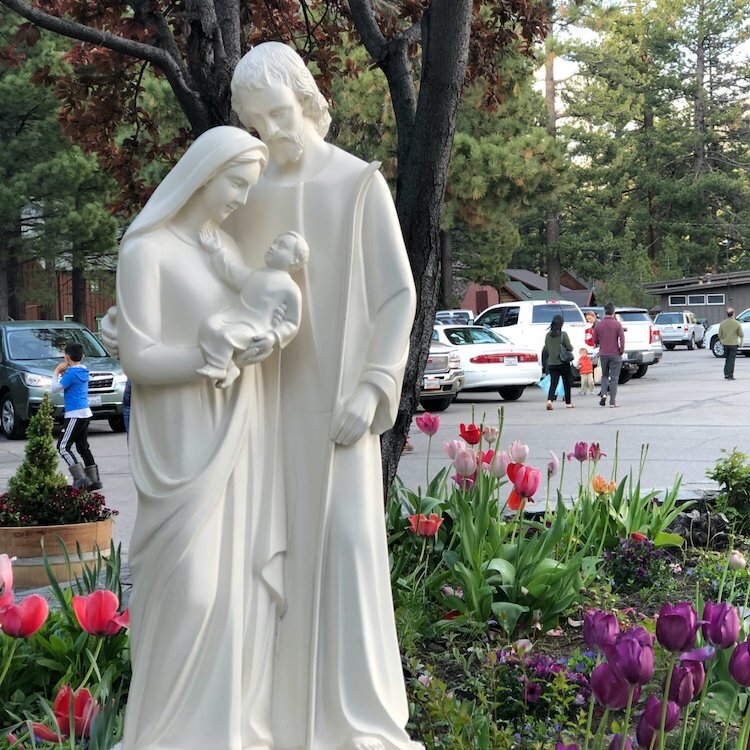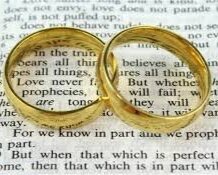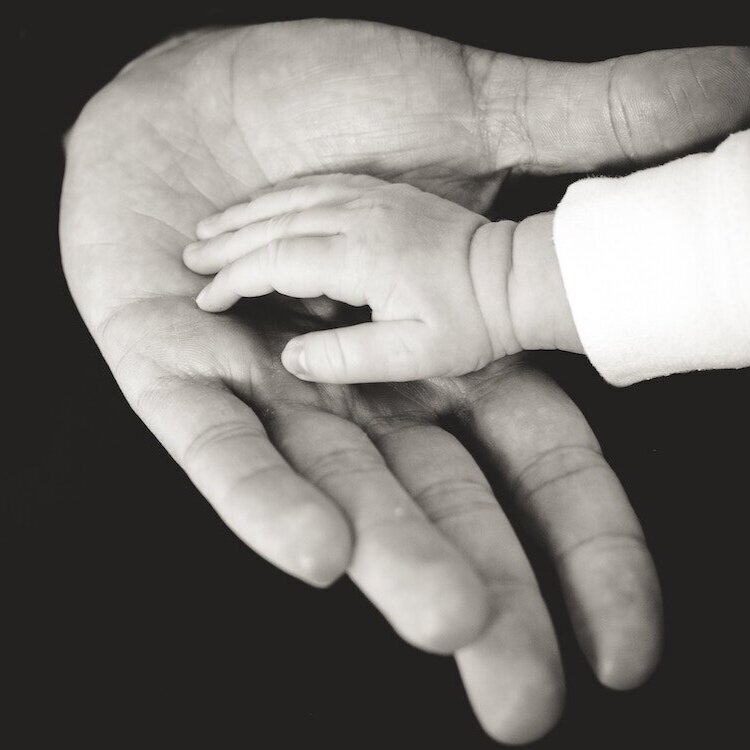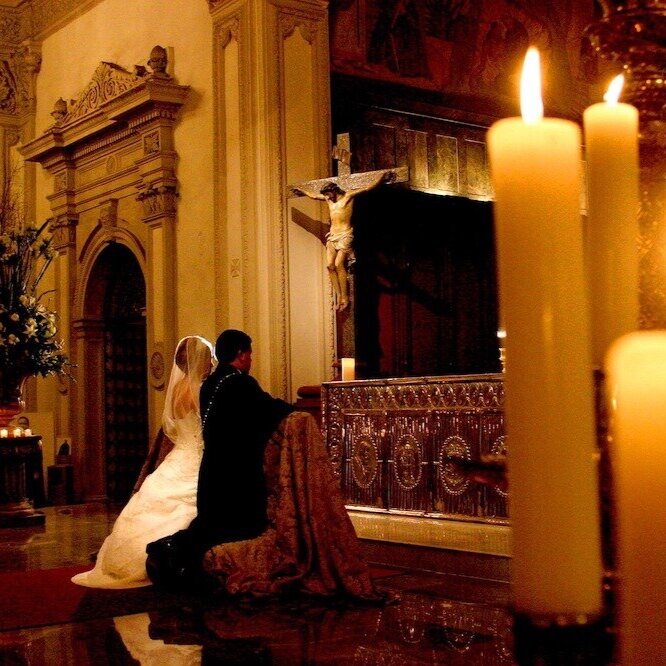“The sacrament of marriage is not a social convention, an empty ritual or merely the outward sign of a commitment. The sacrament is a gift given for the sanctification and salvation of the spouses, … Marriage is a vocation, inasmuch as it is a response to a specific call to experience conjugal love as an imperfect sign of the love between Christ and the Church. Consequently, the decision to marry and to have a family ought to be the fruit of a process of vocational discernment.”
-- Pope Francis, Amoris Laetitia [72]
Catholic Marriage
Accordingly, marriage in the Catholic Church is more than a convention or a sign.
It is a gift from God – a covenant, a sacrament, and a vocation.
Marriage as a Covenant
The first miracle of Jesus’ ministry on Earth involved the transformation of water to wine at the Cana wedding [Jn 2:1-11]. This first miracle shows the importance of the institution of marriage within God’s new covenant with his people. In the Hebrew culture, it was the responsibility of the bridegroom to provide the wine at the wedding feast. As Isaiah prophesizes [Is 62:5], Jesus is the bridegroom coming to wed his bride, the people of Israel:
For as a young man marries a young woman, so shall your builder marry you,
and as the bridegroom rejoices over the bride, so shall your God rejoice over you. [Is 62:5, NRSVCE]
The love Christ has for his Church and that the Church has for Christ reflect the ideal love in a Christian marriage. From the beginning of his creation, God made man and woman to be partners and to be fruitful. The unification of the two make something even more powerful and fruitful than either individual.
Today, marriage is often understood by many as little more than a contractual relationship. However, the Church teaches that marriage is not a contract but rather is a covenant. While a contract is a signed, legally binding agreement between two parties that can be dissolved, a covenant is a sealed, spiritual agreement with the promise of perpetuity. A contract is built upon a mutually beneficial relationship between the parties involved, whereas a covenant is based on each party continually giving of themselves for the other party’s well-being, not just when conditions are mutually beneficial. In a covenant, when times are difficult for one party and they are not meeting their obligations, the other party does not find a way out of the relationship, but rather uses their strength to support the party in distress and fulfill their covenantal promise. The Catholic Church's definition of marriage is:
The matrimonial covenant, by which a man and a woman establish between themselves a partnership of the whole of life and which is ordered by its nature to the good of the spouses and the procreation and education of offspring, has been raised by Christ the Lord to the dignity of a sacrament between the baptized. [CIC 1055]
Marriage as a Sacrament
Four of the key elements of Catholic marriage are straight forward, but the fifth being a “sacrament between the baptized” may be more difficult to understand. Marriage is one of the seven sacraments of the Catholic Church. Sacraments as defined in the Catechism of the Catholic Church are:
… efficacious signs of grace, instituted by Christ and entrusted to the Church, by which divine life is dispensed to us. The visible rites by which the sacraments are celebrated signify and make present the graces proper to each sacrament. They bear fruit in those who receive them with the required dispositions. [CCC 1131]
The visible rite of Marriage is a celebration during which the clergy unite a couple into a holy matrimony includes exchanging vows and the Eucharist. Both husband and wife must be baptized in the Christian faith and at least one must be Catholic. Marriage is a sign of the love of God, and the Eucharist at the wedding mass is the banquet given by Jesus Christ, demonstrating his love for us.
The recipients must prepare to participate in the sacrament as with any sacrament. In order for the engaged couple to have the required dispositions for the sacrament of marriage, they must talk with their parish priest and go through marriage preparation classes to ensure that they are making a prayerful discernment of their vocation, or calling, in God’s plan.
Marriage as a Vocation
In the Catholic Church, a vocation is an invitation from God to a state of life in which one can reach holiness. The three levels of vocations are universal, primary, and secondary. The universal vocation is the call to know, love, and serve the Lord in this life, so that we can continue for eternity. The primary vocation is one of four discernable paths: single life, married life, consecrated life, and the priesthood. We should use prayer to discover which vocation is correct for us. Although the demands and lifestyles of each vocation are different, they all result in a commitment to follow Christ and spread his love to others. Finally, the secondary vocation is our occupation. The work we do to support ourselves also allows us to bring God’s love to others in society and ourselves to holiness.
As Saint Pope John Paul II said in his homily in Central Park in 1995,
"Love makes us seek what is good; love makes us better persons. It is love that prompts men and women to marry and form a family, to have children. It is love that prompts others to embrace the consecrated life or become priests."
As a primary vocation, marriage must be discerned and is not chosen for all by God. God draws two people together in marriage so that they may fulfill his mission together. They come together because they discern that together they are in love with God and with joy they surrender to his purpose. United together, their love for God is strongest.
When a couple marries in the Catholic Church, they are choosing their vocations in the church. Holy Orders and Matrimony, the Sacraments of Service of Communion, involve commitment to vocational states that are tasked with the salvation of others. Priests are tasked with the salvation of their flock, while spouses are tasked with the salvation of their immediate family. The Catechism of Catholic Church states:
“…Holy Orders and Matrimony, are directed towards the salvation of others; if they contribute as well to personal salvation, it is through service to others that they do so. They confer a particular mission in the Church and serve to build up the People of God.” [CCC 1534]
To aid in their vocational discernment, engaged couples are required to get pre-marriage counseling in the Catholic Church for at least six months. Your parish can provide details on their specific requirements and programs. The website of United States Conference of Catholic Bishops directs users to the For Your Marriage website for information on marriage readiness, marriage preparation, wedding planning, and much more.

